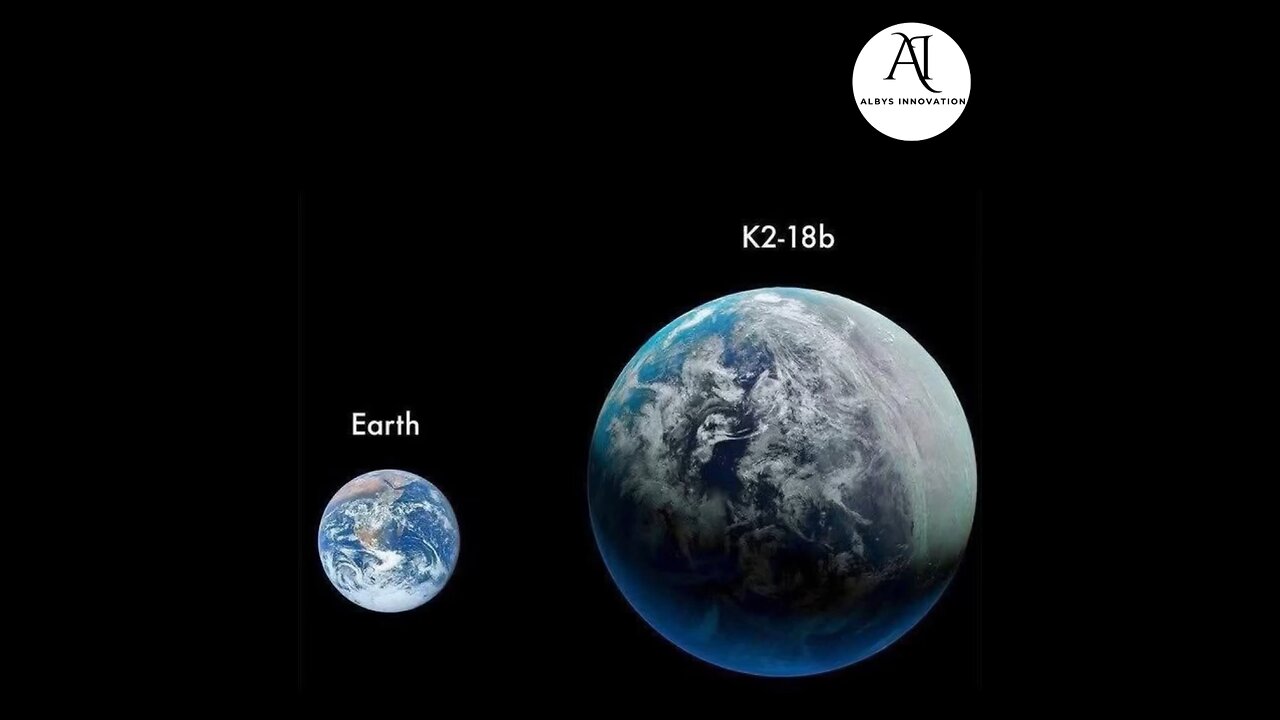Premium Only Content

James Webb Detects Possible Signs of Alien Life on K2-18b – A Game-Changer in Astrobiology
In a groundbreaking discovery, the James Webb Space Telescope (JWST) has detected potential biosignature gases in the atmosphere of exoplanet K2-18b, located 124 light-years away in the constellation Leo. Researchers from the University of Cambridge identified compounds such as dimethyl sulfide (DMS) and dimethyl disulfide (DMDS), which on Earth are primarily produced by marine microorganisms like phytoplankton . 
K2-18b is a “Hycean” planet—larger than Earth and possibly covered entirely by oceans with a hydrogen-rich atmosphere . The presence of DMS and DMDS in its atmosphere suggests the intriguing possibility of microbial life beyond our solar system. 
While these findings are not definitive proof of extraterrestrial life, they represent the strongest evidence to date and mark a significant milestone in our quest to understand the universe. Further observations and studies are needed to confirm these results and rule out non-biological sources for these compounds . 
Join us as we delve into this exciting development, exploring what it means for the future of space exploration and our understanding of life’s potential beyond Earth.
#JamesWebb #K218b #AlienLife #ExoplanetDiscovery #Astrobiology #NASA #SpaceExploration #JWST #HyceanWorlds #Biosignature #ScienceNews #SpaceScience #LifeBeyondEarth #Astronomy #BreakingNews
-
 1:53:25
1:53:25
Steven Crowder
3 hours agoThe CDC Exodus: RFK Forces Self-Purge of the Corrupt Elite
202K125 -
 LIVE
LIVE
The Rubin Report
2 hours agoDave Rubin Can’t Believe This Happened While He Was Off the Grid | Jillian Michaels Guest-Hosts
2,347 watching -
 LIVE
LIVE
Rebel News
33 minutes agoFather killed in home invasion, Predator targets toddler, Who's destroying Canada? | Rebel Roundup
319 watching -
 UPCOMING
UPCOMING
TheAlecLaceShow
1 hour agoTrump Health Hoax | Warp Speed Truth | UK Protests | Guest: Sheriff Mack | The Alec Lace Show
39 -
 LIVE
LIVE
The Mel K Show
1 hour agoMORNINGS WITH MEL K - Liberty, Privacy, Sovereignty & Justice: The Battle Ahead 9-2-25
1,005 watching -
 18:52
18:52
Colion Noir
1 day agoCourt Rules You Don't Need AR-15s For Self Defense, Mayor's Message If You Love Kids Ban AR-15s
40.3K150 -
 LIVE
LIVE
The Shannon Joy Show
1 hour agoKicking And Screaming … Trump FINALLY Admits Operation Warp Speed MAY Have Been A Complete Failure
276 watching -

Grant Stinchfield
1 hour agoCOVID VAX SECRETS: BIG PHARMA PANICS AS TRUMP DEMANDS THE TRUTH!
7951 -
 LIVE
LIVE
LFA TV
6 hours agoLFA TV ALL DAY STREAM - TUESDAY 9/2/25
4,823 watching -
 1:01:26
1:01:26
VINCE
4 hours agoShockwaves in the Swamp Over Trump's Latest Move | Episode 116 - 09/02/25
187K122